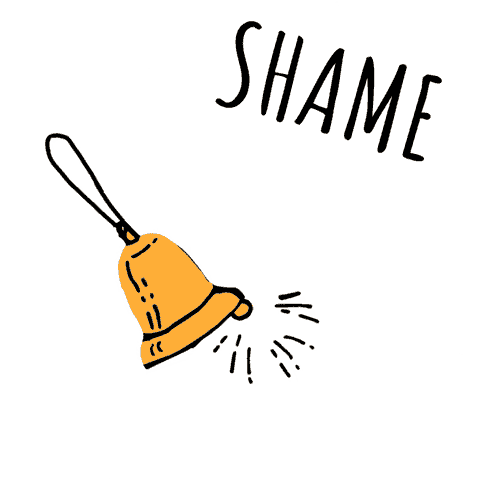CA Med-Legal Billing: 3 Tips to Win IBR Disputes

Statistically, California Medical-Legal evaluators are highly likely to prevail at Independent Bill Review (IBR) — but that doesn’t mean physician evaluators can’t benefit from a few billing tips to help ensure 100% correct reimbursement for Medical-Legal evaluations and reports.
The IBR disputes in which the payer prevailed in 2023 offer insights into how Medical-Legal physicians can denial-proof their bills.
Below, see three tips for stacking the odds further in your favor — or potentially avoiding the payment dispute altogether.
MLFS: 3 Billing Tips for Winning at (or Avoiding) IBR
Medical-Legal evaluators can glean key billing lessons from the 4% of IBR decisions where Maximus (the entity that conducts IBR on the state’s behalf) rendered an ‘Uphold’ decision, i.e., a decision upholding the payer’s denial or adjustment.
Below, we list all 9 ‘Uphold’ decisions Maximus issued in 2023, along with the reasoning Maximus offered for each (case numbers link to the public records):
IBR Case Number |
Reason for ‘Uphold’ Decision |
Testing time not documented for diagnostic service |
|
Testing time not documented for diagnostic service |
|
Testing time not documented for diagnostic service |
|
Testing time not documented for diagnostic service |
|
Modifier -96 added; psych not focus of the report |
|
Modifier -97 added; toxicology not focus of the report |
|
Modifier -94 not applicable to ML203 in conjunction with Modifier -98 |
|
Modifier -93 not sufficiently documented |
|
MLPRR verification per CCR §9795 not included |
Based on the above, here are three ways to beef up your Medical-Legal bills:
Tip 1: Always document the time required for additional diagnostic testing.
Qualified Medical Evaluators (QMEs) and Agreed Medical Evaluators (AMEs) may conduct diagnostic testing (without prior authorization from the claims administrator) when both of the following conditions are true:
- The medical documentation provided to the Medical-Legal doctor lacks “adequate medical information” that would otherwise make the test unnecessary AND
- Subjective complaints and physical findings make the diagnostic test(s) necessary to complete the evaluation.
In the Medical-Legal evaluation report, the physician should document the above two conditions to substantiate the need for diagnostic testing. If the diagnostic test reimbursement is time-based, the evaluator must document the time it took to conduct the testing.
The Physician Fee Schedule determines the reimbursement for diagnostic testing performed for Medical-Legal evaluation purposes.
Tip 2: Know your modifiers.
Four of the ‘Uphold’ decisions involved the erroneous application of a Medical-Legal Fee Schedule (MLFS) modifier. Remember that:
- Modifier -93 is reported when interpreter services are utilized. Absurdly, the evaluation report must document “the circumstance” and “increased time required” for interpretation. Yes, physicians must explain why an interpreter is needed (as if it isn’t apparent).
- Certain combinations of modifiers and billing codes are impermissible, e.g., Modifiers -94 and -98 cannot be applied together to billing code ML203.
- Some modifiers are only permissible when the physician meets specific specialty criteria and that specialty is the report's primary focus, e.g., Modifier -96 and -97 for psych and toxicology evaluations.
For more details on modifiers and when (and when not) to use them, see our MLFS Cheat Sheet.
Tip 3: Always verify the number of pages of medical records for MLPRR.
Billing code MLPRR pays $3 for each page of medical records reviewed by the Medical-Legal evaluator over the page limits for each primary billing code (e.g., when records exceed 50 pages for ML203, 200 pages for ML200, etc.).
California regulations require the party that sends the records to the evaluator to include a formal declaration and attestation specifying the number of pages sent. daisyBill strongly recommends that when billing MLPRR, the evaluator includes this attestation with the bill.
To receive payment for MLPRR, the evaluator must provide proof of the number of pages of records reviewed by including in the evaluation report a formal verification of that number (under penalty of perjury).
To help ensure accurate billing for Medical-Legal record review, refer to MLPRR: Record Review Guide for CA Med-Legal MDs.
Med-Legal Evaluators Should Be Paid 100% MLFS
For correctly billed Medical-Legal services, the evaluator should always receive 100% of the reimbursement rates listed in the MFLS (and the Physician Fee Schedule for diagnostic testing). California does not allow PPO discounts for Medical-Legal services.
ML evaluators should always appeal improper payment denials or adjustments by submitting a Second Review appeal within 90 days of the initial Explanation of Review (EOR). If the Second Review appeal fails, always request IBR within 30 days of the final EOR.
If you use a third-party billing vendor to manage your Medical-Legal bills, request a monthly report that demonstrates your vendor is billing and collecting at 100% of MLFS rates — remember, reimbursement discounts are not allowed and diagnostics are payable.
Have questions? We’re here — use the chat function at the bottom right of this page, or email us at info@daisybill.com.
Med-Legal billing requires specialized expertise. To learn how our software or managed billing services can protect and increase your revenue, choose a time to chat with us below.
SCHEDULE CHAT
DaisyBill provides content as an insightful service to its readers and clients. It does not offer legal advice and cannot guarantee the accuracy or suitability of its content for a particular purpose.
.gif)





.gif)